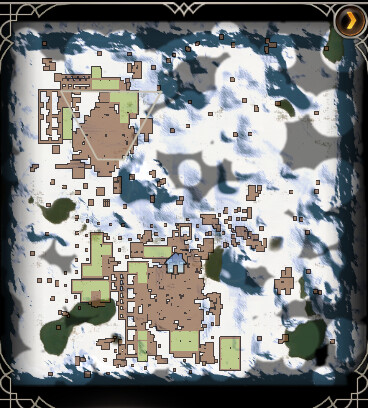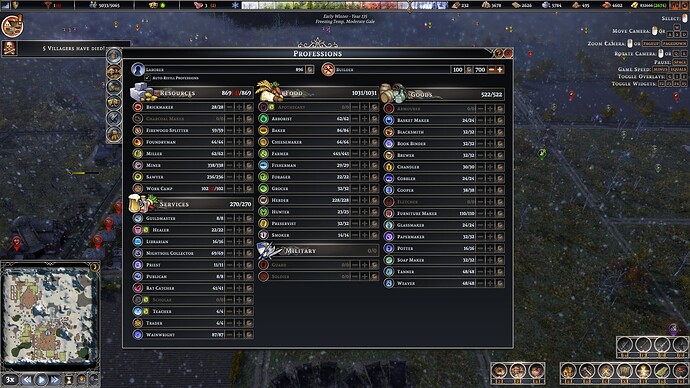When it comes to bigger settlements (my biggest so far has just surpassed 5000 inhabitants), the algorithm seems to break down and no longer work as intended.
Current statistics of my population and labour pool:
Layout of my current city:

Boiled down, the biggest issues I’m encountering are as follows:
-
Upkeep is an issue. Buildings keep getting condemned, however, this is mostly affecting production buildings, but some housing can be affected as well. The further out the building is, the bigger the problem gets. To mitigate this, I’ve tried to place stockyards and storehouses strategically requesting the needed building materials the nearby buildings will need for upkeep. This has helped quite a bit, but hasn’t solved the issue. Clicking the “Mark for immediate repairs” doesn’t seem to change things much, if at all.
-
Travel time. SIngle-worker buildings are hit hard here. Ratcatchers, nightsoilmen, smokehouse etc will spend most of their time on anything but working as intended. The algorithm doesn’t seem to take into account where the workers live compared to the placement of their workplace. I’ve seen nightsoilmen that are placed in the north settlements go down to the south, and vice versa.
-
Production numbers: As the city grows, the actual production numbers plummet. In early game I’ve seen smokehouse produce 1200-1300 pieces of smoked meat, but will usually never surpass 300 in bigger settlements. Firewood splitters and bakeries are also affected in the same manner.
There are many more smaller examples, but these are the main issues as I see them. Even though I have 800-1000 free labourers, they are not being utilized at all. I’m not sure how or why the algorithm seems to break like this, but it virtually makes it very difficult to have larger settlements. I do know that I’m an edge-case user, as very few people probably build as big as I do.
